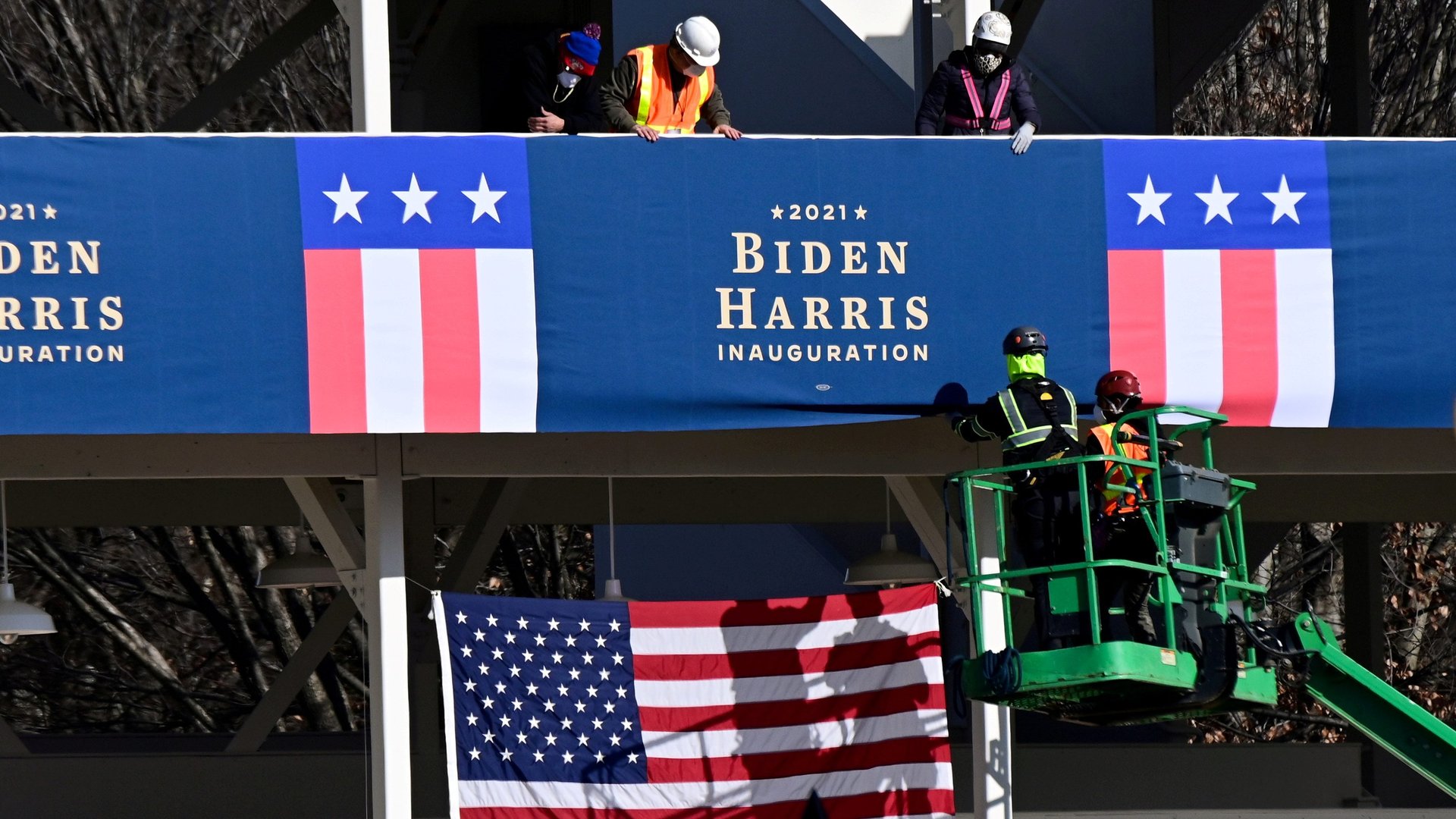The crises looming over Biden’s inauguration make it all the more important
To call the forthcoming US presidential inauguration of Joe Biden unprecedented would be an understatement. Covid-19 demands social distancing—only a limited number of people will be able to attend the event, which would otherwise attract hundreds of thousands. An art installation featuring 191,500 American flags and 56 light pillars (one for each state and territory) will replace crowds on the mall.


To call the forthcoming US presidential inauguration of Joe Biden unprecedented would be an understatement. Covid-19 demands social distancing—only a limited number of people will be able to attend the event, which would otherwise attract hundreds of thousands. An art installation featuring 191,500 American flags and 56 light pillars (one for each state and territory) will replace crowds on the mall.
The theme of the inauguration is “America United,” but signs of a country divided will be everywhere. Donald Trump, having just been impeached for encouraging a mob to storm the Capitol, will not attend. The incoming president will have military escorts, and the whole of Washington DC will be on high alert, so great is the risk of violence from those who refuse to accept the result of a democratic election.
Yet perhaps it’s precisely the crises looming over the inauguration—of health, and democracy—that make it, and its symbolism, all the more important. Like three bipartisan wise men, former presidents Barack Obama, George W. Bush, and Bill Clinton will join Biden and vice president Kamala Harris. The parade to follow will be virtual, and so for the first time experienced the same way by all Americans, regardless of their proximity to the capital.
No matter the turmoil of the past few weeks—or the turmoil expected over the next few days—the US must turn one of its darkest pages. It’s a moment that deserves all the attention it can get, even with increased safety measures and the limitations of social distancing. Exactly two weeks after watching rioters storm the Capitol, Americans will watch the swearing in a new president—and a history-making vice president—from that same building. It should be a testament to the resilience of their democratic institutions, and an invitation to put trust in those institutions once more.